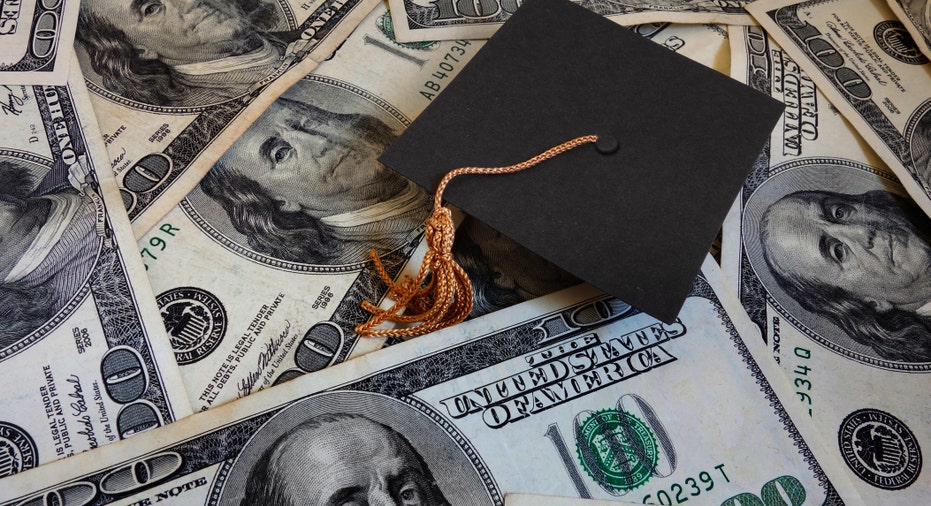3 ways to tackle private student loans if you can’t pay due to coronavirus

If you’re having trouble paying down student loan debt during the pandemic, there may be some relief options to consider. (iStock)
If you’re having trouble paying student loan debt during the pandemic, there may be some relief options to consider. Student loan debt was a staggering $1.56 trillion as of February 2020 and since late March many borrowers found themselves financially unstable thanks to the coronavirus and social distancing precautions.
The U.S. government recently stepped in and introduced the Coronavirus Aid, Relief, and Economic Security (CARES) Act, a $2 trillion economic relief package that includes waiving qualifying federal student loan payments through Sept. 30, 2020. Under this program, the interest on federal student loans is automatically suspended through the end of 2020 to give borrowers some added payment relief.
But the CARES Act only applies to federal student loans, which is debt backed by the U.S. government. A good number of students also have private student loans that come from private banks, credit unions, and online lenders. While those borrowers won’t be able to benefit from the new law, they are not completely out of luck. If you’re one of those borrowers and have trouble paying your private student loan as a result of the coronavirus, check out these three options.
1. Refinance your private student loans
One option if you can’t pay your private student loans during the coronavirus is to refinance them.
Interest rates are historically low right now and a refinance can reduce your payment and make that monthly obligation more manageable. On an online marketplace like Credible, you can check and see if you're eligible for a better interest rate than what your current lender gives you. This is ideal for fully employed borrowers with no credit blemishes.
3 THINGS TO KNOW BEFORE BORROWING FOR COLLEGE
However, be sure and research different lenders as not to get hung up on the first lending institution you find. This is where many borrowers make their mistake. There is no one-size-fits-all when it comes to interest rates. It is also good to be able to make side-by-side comparisons with several lenders at once. Take a look at sites like Credible, where you can easily shop and compare student loan refinancing options from multiple lenders without affecting your credit score.
HOW TO CHOOSE THE BEST STUDENT LOAN REFINANCING OFFER
2. Consider forbearance options
Temporarily suspending your student loan payments will offer you some immediate debt relief. While there’s no law mandating a temporary forbearance or deferment for private student loan lenders, many are voluntarily offering borrowers an emergency 60-90 days of no payments since the coronavirus shut down the country. The Consumer Financial Protection Bureau said some private lenders are waiving late fees and will not file negative reports to credit agencies so your account will remain in good standing.
To avoid accruing extra costs after the forbearance term ends, ask if your lender will waive the interest. This way you can keep your loan balance from growing.
3. Ask for a rate reduction
That old adage, you never know until you ask is especially true when it comes to this method. Simply ask your lender for a rate reduction. Just by reducing the rate you can wind up paying a lot less per month on your student loan. This is more likely to be effective if you have become unemployed or sick and it has affected your ability to pay the current amount. Call or write you private student loan lender to see if they can reduce your rate. Let them know that you‘re anxious to continue paying your loan. Find out your rate now by inserting some simple information into Credible's free online tool.
THIS IS WHY STUDENT LOAN REFINANCING RATES ARE GOING DOWN
For added leverage, you can also let your lender know you’re looking to refinance with another lender. Your student loan servicer doesn’t want to lose your business and may be more open to offering a lower rate if they think you may take your business elsewhere.
It’s no secret that a loss of employment and stability has gone hand in hand with the coronavirus outbreak. Don’t wait for your lender to reach out to you first. If you have trouble keeping up with your payments, the Consumer Financial Protection Bureau (CFPB) advises borrowers to contact their student loan servicer to find out what type of hardship assistance they offer.



















